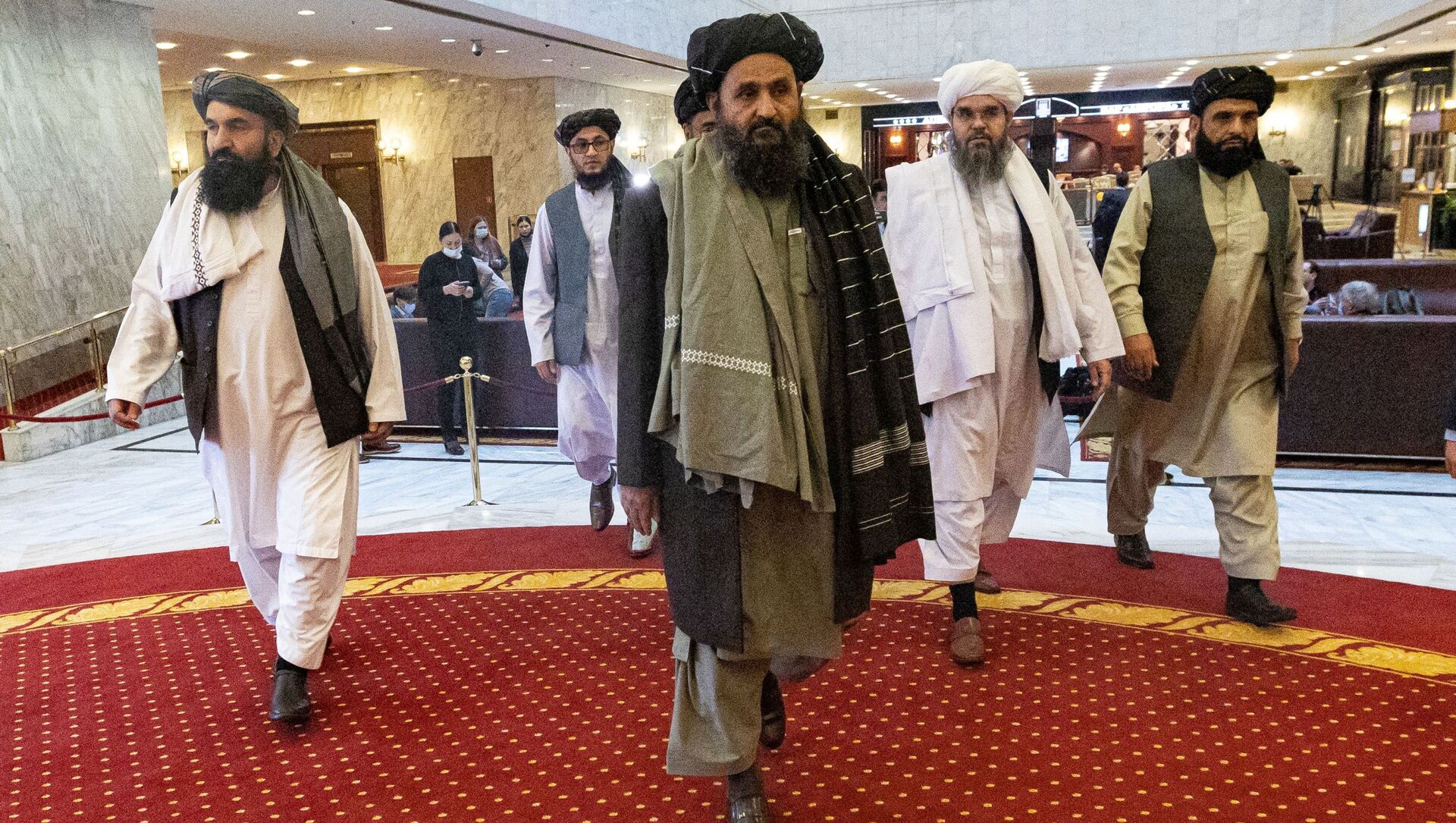The New York Times has linked the reported spike in clashes between the military wing of the Taliban*, an Islamist organisation, and Afghan government forces with the US and NATO's withdrawal from the country.
The newspaper suggested that President Joe Biden's decision to pull out the remaining American troops and international forces by 11 September 2021 had "emboldened the Taliban and called into question Afghanistan's fate". According to the NYT, "dozens of districts" have fallen into the hands of militants since the US and NATO forces started withdrawing from the region on 1 May 2021.
Biden's Reversal of Trump's Afghan Policy
Initially, the decision to depart from the Central Asian nation was made by President Donald Trump as part of the US peace deal with the political representatives of the Taliban.* The agreement was signed on 29 February 2020 in Doha with the aim of ending America's longest war. Under the agreement, Washington vowed to complete a full withdrawal by 1 May 2021. In exchange the group, which refers to itself as the Islamic Emirate of Afghanistan, was obligated to cease military activities and engage in intra-Afghan talks with the country's government.
However, Biden's victory in the 2020 presidential elections postponed the US withdrawal for several months, prompting concerns and ire among Taliban policy-makers. On 16 February, Taliban leader Abdul Ghani Baradar Akhund released an open letter to the people of the United States of America calling upon the US to respect its commitments and withdraw from the region. He specifically signalled that "defending our land and people is our legitimate right".
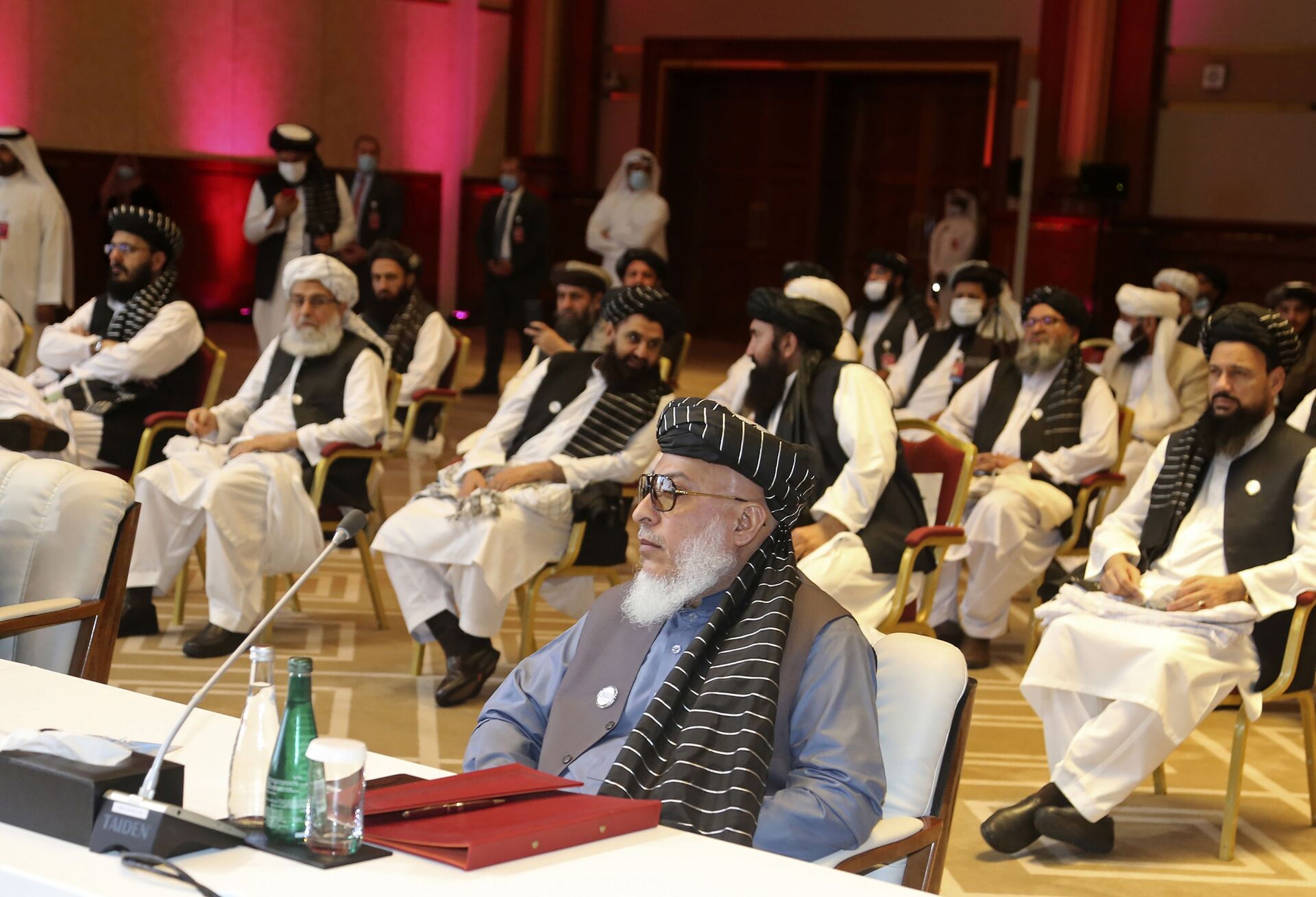
In mid-March, The Washington Post published a leaked document dated 28 February 2021 that outlined the Biden administration's new proposal for a political settlement in Afghanistan. According to the media outlet, the plan was handed over to the Taliban and Afghan government after Biden reviewed Trump's Afghan policy and the US-Taliban agreement.
The new proposal envisaged the establishment of an interim government, re-writing the country's constitution in accordance with the "democratic" principles of Afghanistan's 2004 state law, "balancing" the role of Islam in the country and placing the decisions of the country's Supreme Court above a "High Council for Islamic Jurisprudence". Previously, the Taliban insisted on increasing the role of Islamic institutions in the country. Thus, WaPo admitted that "within those proposals are elements both sides have described as nonnegotiable, so the [Biden] plan is unlikely to be implemented in its current form".
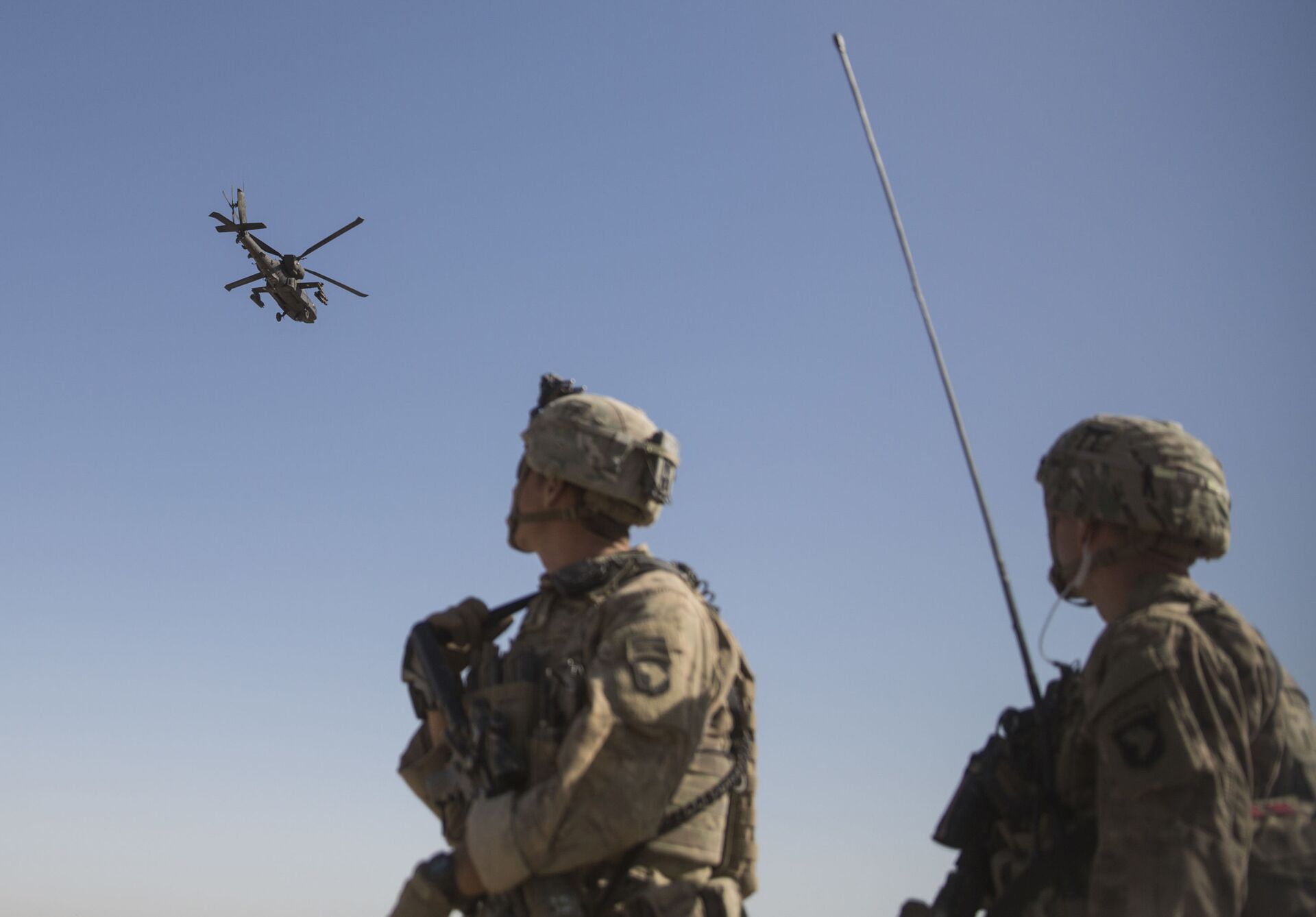
US is Likely to Add Troops to Afghanistan Amid Withdrawal
The Biden administration announced in April that the US would begin the process of withdrawal on 1 May 2021. At the same time, Pentagon spokesman John Kirby signalled that America is likely to temporarily beef up its military presence in Afghanistan over the coming weeks and months.
"It's a landlocked country, and there is clearly the potential for resistance here, opposition, as we begin to draw down", explained Kirby. "It's not out of the realm of the possibility that some temporary enabling functions may have to be introduced into the region to permit this to be as safe and as orderly as possible. That would be the right thing to do. The prudent thing to do. It would be irresponsible if we weren't thinking about that".
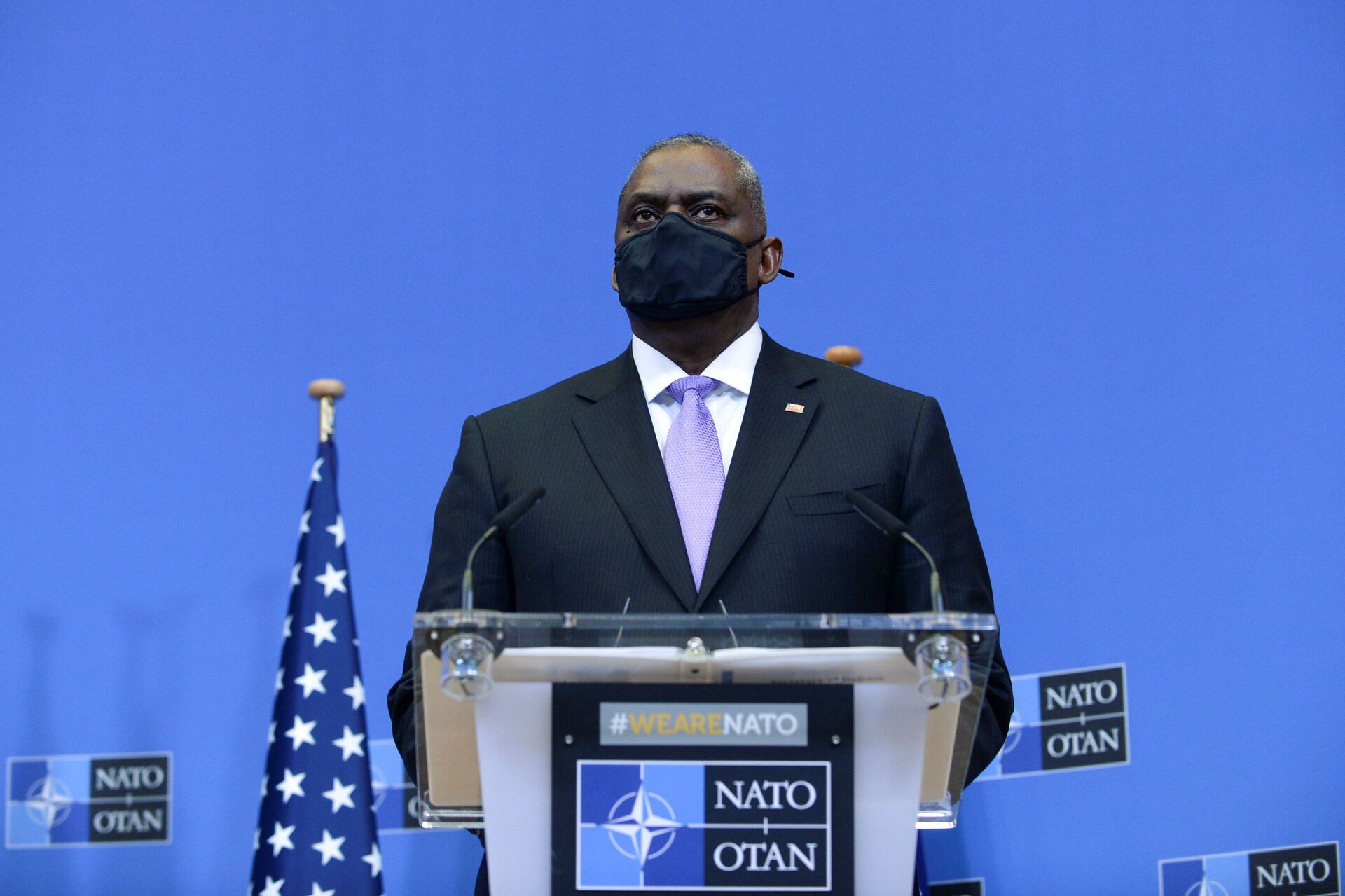
By early June, Washington had pulled out more than 50 percent of its forces and equipment, according to US Central Command, adding that it would no longer be updating the specific percentage of its withdrawal over security concerns. Concurrently, the US mainstream media raised concerns over the Taliban's apparent large-scale offensive with an alleged aim to overrun the Afghan government and take control of the country.
"The Taliban are encircling Afghan police and army positions and encroaching on government-held territory, positioning themselves for large-scale offensives against major population centres while waiting for the last American troops to depart Afghanistan… [W]ith air support ending within weeks, government forces will lose a pivotal edge in the conflict", The Wall Street Journal predicted gloomily on 7 June.
For his part, US Defence Secretary Lloyd Austin suggested on 17 June that it would take militant groups like al-Qaeda* two years to step up their presence in Afghanistan after the full withdrawal of US and NATO troops from the country and pose a danger to the US and its allies.
"It would take possibly two years for them to develop that capability", US Defence Secretary Lloyd Austin told American lawmakers on Thursday.
On the same day, US National Security Adviser Jake Sullivan stated that the White House "take[s] seriously the concern that the Taliban or other elements in Afghanistan will attack the Western — or the international presence — diplomatic presence or security presence in and around Kabul".
"That's why we are putting together a detailed and effective security plan", stated the national security adviser.
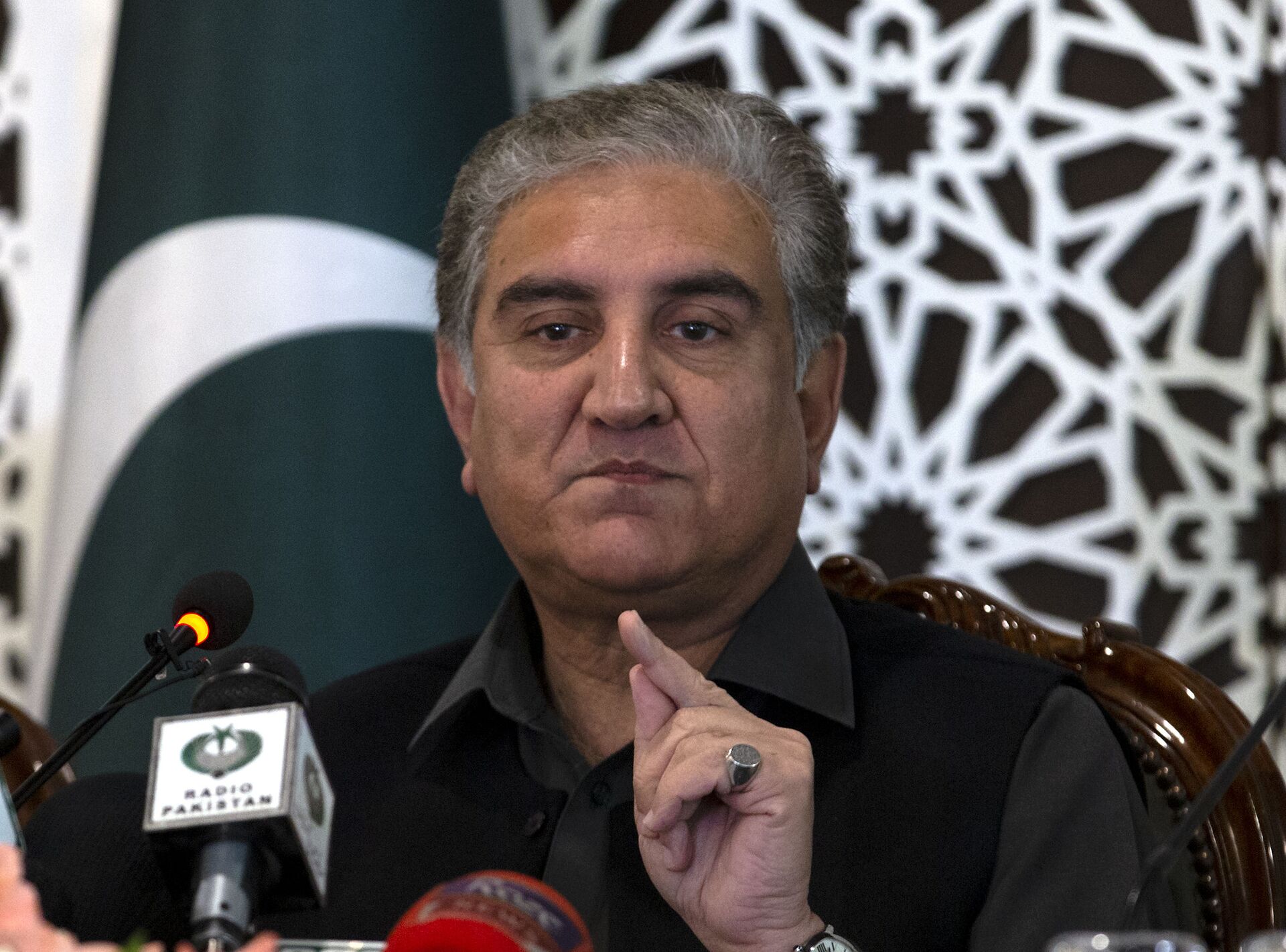
Pakistan Throws Anti-Taliban Narrative Into Doubt
Meanwhile, Pakistan, which played an important part in the US-Taliban negotiations under Donald Trump, has been subjected to criticism by both Washington and Kabul over controversies surrounding the implementation of peace accords. In response to these allegations, Pakistan's Foreign Minister Shah Mahmood Qureshi told the inaugural session of the Pak-Afghan Bilateral Dialogue last Monday that Islamabad would not take responsibility if the peace process in Afghanistan collapses. According to Qureshi, Pakistan has delivered what it could to help settle the crisis, warning against attempts by Washington and Kabul to scapegoat the country.
During an interview with Afghanistan's Tolo News on 17 June, Pakistani Foreign Minister Shah Mahmood Qureshi additionally cast doubt on the premise that the Taliban was to blame for the latest spike in violence in Afghanistan.
"If you try and create this impression that the violence is high because of Taliban, again, that would be an exaggeration," Pakistan Foreign Minister Shah Mahmood Qureshi tells TOLOnews.
— TOLOnews (@TOLOnews) June 19, 2021
Full interview here: https://t.co/Am47vVYUJs pic.twitter.com/y9RzSewP9H
"Who's responsible for that?", Qureshi asked. "Again, if you try to create this impression that the violence is high because of the Taliban...again, that would be an exaggeration. Why do I say that? Aren't there other elements over there who are playing the role of a spoiler?"
When asked as to who could be involved in the latest attacks in the country, the Pakistani foreign minister suggested that it could be Daesh* or similar forces within Afghanistan "who gain from the war economy, who want to perpetuate their power".
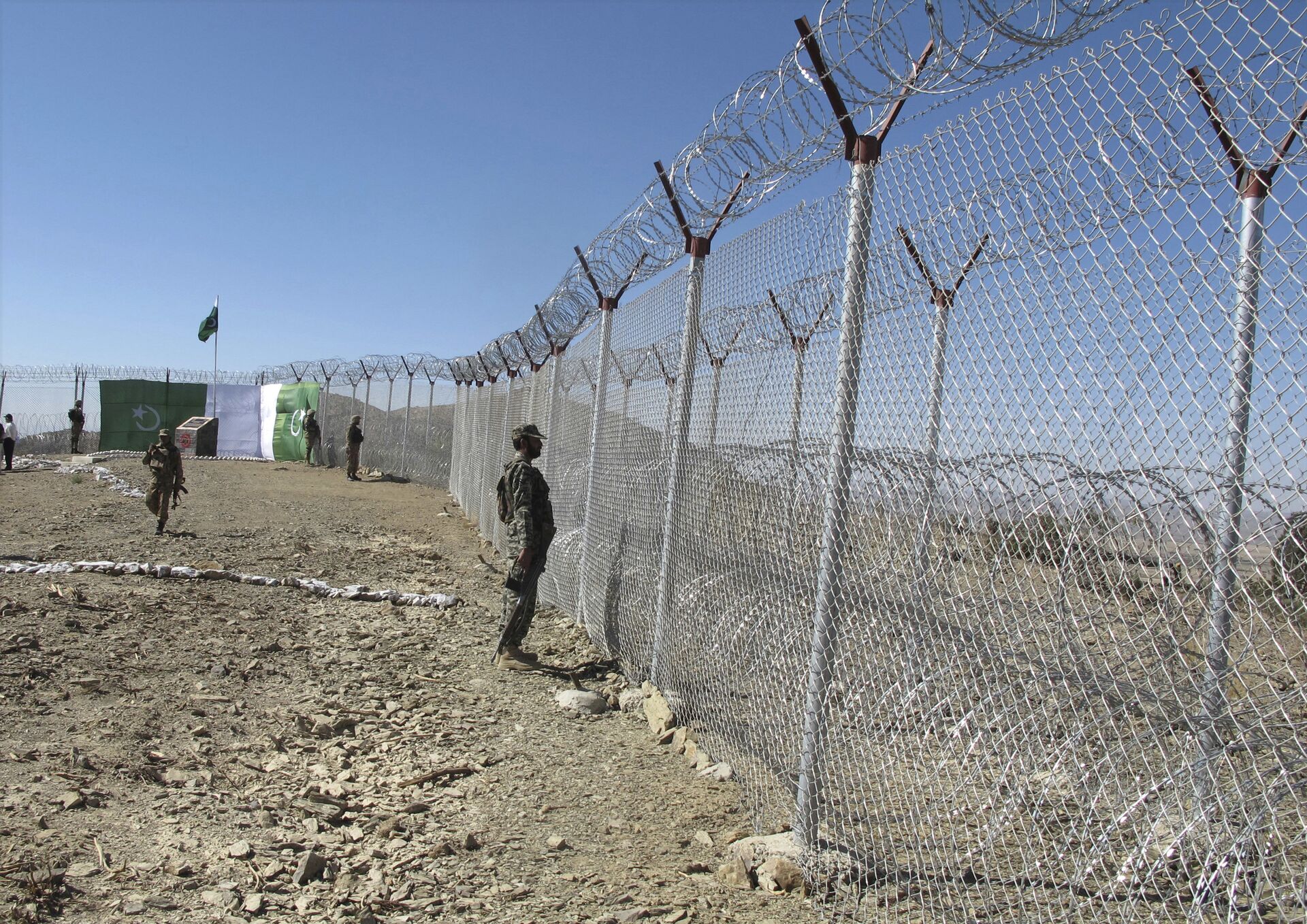
Peace and stability in Afghanistan is in the strategic interests of Pakistan, argued Syed Ali Zia Jaffery, a strategic affairs and foreign policy analyst, in an op-ed for The National Interest. First, Pakistan is seeking to kick off the Turkmenistan-Afghanistan-Pakistan (TAP) Power Interconnection Project and the Turkmenistan-Afghanistan-Pakistan-India TAPI gas pipeline. Second, Islamabad needs to rein in anti-Pakistan militant groups currently operating in Afghanistan. Third, Pakistan wants to maintain working relations with Washington, the analyst explained.
"Thus, it is only logical to argue that Pakistan will not undermine its own economic interests by deliberately impeding US plans for Afghanistan, especially when it has repeatedly warned that it won't approve of being scapegoated should Afghanistan wade into chaos", the strategic affairs analyst concluded.
*Taliban, al-Qaeda, and Daesh are terrorist organisations banned in Russia and many other countries.

